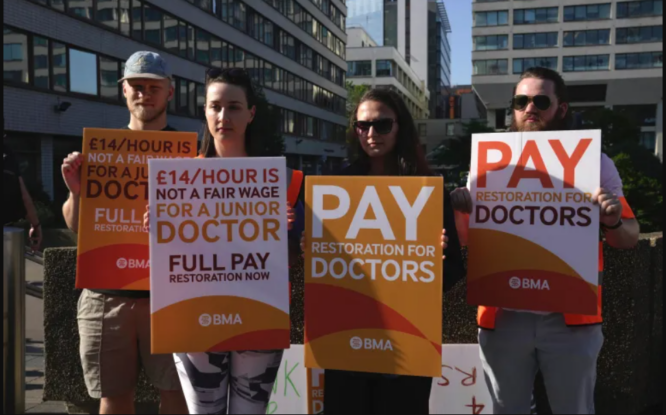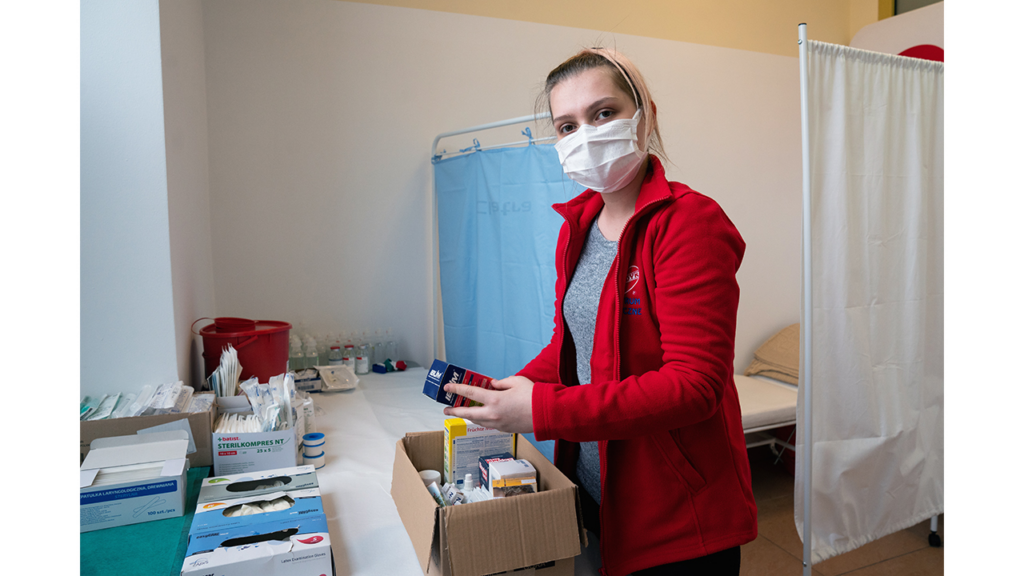Refugees can address Europe’s doctor shortage. Poland proves 2023

Europe and Central Asia have never had such strained health systems. Health professionals are exhausted by COVID-19.
The cost-of-living crisis has increased work discontent. UK, France, Ireland, Portugal, Spain, and Germany have seen hundreds of thousands of health workers strike.
In several of the 53 European nations of the World Health Organization, more than 40% of doctors are over 55. Retirement might strain these countries’ healthcare systems.
The healthcare workforce is unsustainable. Our health systems are only as good as their workers due to ageing populations, rising chronic illnesses, and disease outbreaks.
The Ukraine war has new difficulties. Over eight million refugees have been allowed into Europe for 16 months. Generosity strains public services, notably health.

Poland hosts 1.5 million Ukrainian refugees. Poland’s population rose by 4% in one year. In one key area, the county is turning a hardship into an advantage.
Win-win solution
Many refugees are well-trained health and care workers who wish to work but lack a license. Recognizing this squandered opportunity, the Polish government collaborated with the WHO Country Office in Poland to integrate skilled Ukrainian immigrants into the health workforce.
A Ukrainian-language information hotline for non-EU doctors, dentists, and nurses was inaugurated in November 2022. It gives detailed information on acquiring a temporary medical license and helps Ukrainian refugees and others navigate Poland’s health system by guiding them to treatment and drugs. Over 4,200 Ukrainian health professionals have temporary Polish licenses.
The WHO, Polish Ministry of Health, and Warsaw Centre of Postgraduate Medical Education have developed a free, online course for Ukrainian doctors and dentists about the national health system.

To safeguard Ukrainian refugees and migrants working in Poland, the WHO and the Polish Nofer Institute of Occupational Medicine (NIOM) have created occupational health information and online courses.
Lessons learned
Poland’s innovative refugee health system draws on these lessons and can teach other nations.
First, receiving medical treatment in their own language is a big comfort for migrants navigating a new health system. Refugee health providers may speak their native language and empathize with patients because of their own experiences.
Second, integrated health professionals preserve their expertise, which will help them restore their country’s health system when they return.
Third, refugees in the health workforce benefit the host nation. Training and assistance can improve local treatment standards, health system capacity, and host community benefits. Refugees require help learning local languages and medical practices.
European healthcare disparities are significant, and time is running short. Although refugee integration cannot solve the health workforce issue, its advantages suggest that we can learn from it and promote it.
Governments must move quickly to take advantage of innovations and win-win solutions like Poland’s.
